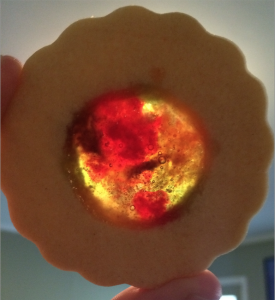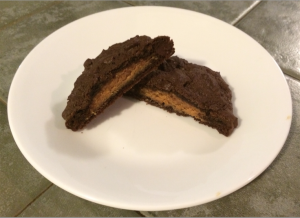David McRaney's Blog, page 32
August 1, 2014
YANSS Podcast 029 – How labels affect our thoughts, feelings, and behaviors with Adam Alter
The Topic: Labels
The Guest: Adam Alter
The Episode: Download – iTunes – Stitcher – RSS – Soundcloud
I did something this week that I’m sure many people secretly do every day. I stopped, talked to myself for a moment, and checked to see how much slack was in the leash I keep on my tongue.
I was reminded that I need to do that from time to time, or at least I believe that I do, by a bit of news that was passed around for a few days this week. The reports said that one of the government’s most prestigious energy laboratories was working to eradicate the Southern accent – not from the planet, mind you, just from employees who had requested the service.
The Oak Ridge National Laboratory is a place where Nobel laureates hang out. It’s a place where thousands of scientists work daily trying to solve some of the world’s most serious problems. It has, according to the website, a $1.46 billion annual budget. This week, NPR reported that the Tennessee laboratory swiftly canceled its plans to hold a six-week course aimed at reducing the Southern drawl among employees. They explained to reporters that the course was created at the request of employees, not the lab, and that it was also shot down by other employees who found the idea offensive.
I learned through this reporting that there are professional twang assassins who go around to businesses and large organizations like this one helping people neutralize and flatten their native lilts and inflections. Not just the Southern accent either, if your organization is chugging along thanks to regional dialects weighted down with negative associations, professionals can help rid you of that baggage.
I have to admit, it bothers me that brilliant scientists would be self-conscious about droppin’ the letter g, and leaving behind a trail of y’alls during lectures about spallation neutron sources and high flux isotope reactors. But, I get it. I feel for them. If I hadn’t spent so much time over the years working to flatten out my own Southern accent, and if I knew what a high flux isotope reactor was, I might consider taking that course.
I don’t hate the Southern accent. I’m not ashamed of it. I share my motivations with Stephen Colbert who explained why he flattened out his tongue back in 2006 in an interview with 60 Minutes. When Morley Safer asked him why he didn’t sound like other people from South Carolina, Colbert said, “At a very young age, I decided I was not going have a southern accent. When I was a kid watching TV, if you wanted to use a shorthand that someone was stupid, you gave the character a Southern accent. Now that’s not true. Southern people aren’t stupid, but I didn’t want to seem stupid. I wanted to seem smart.”
I want to seem smart too, or, at least, not dumb. That’s why I hide my accent and occasionally reel it back in when I notice it’s getting too frisky. The Southern accent tells people you are from the South, and being from the South labels you with an assortment of negative associations, and the associative architecture of memory causes people to involuntarily, unconsciously, invisibly change they way they think, feel, and behave once such a label worms its way into the brain.
Consider these two phenomena – the Baker/baker paradox and the halo effect. The Baker/baker paradox describes how subjects in studies tend find it very difficult to remember last names like Farmer or Baker but find it very easy to remember that each person was a baker or a farmer. The last names are part of weak networks with few nodes while the professions are part of vast networks with constellations of nodes connected to ideas all over the mind. How many Farmers can you name? How many items can you name that you might find on a farm? The stronger the network, the easier it is to think about something, to remember it, and to feel whatever your culture and upbringing has primed you to feel about it. That’s why the halo effect is so powerful. In what is now known as The Hannah Study, subjects watched as a young girl answered a series of difficult questions correctly and a series of easy questions incorrectly. When asked to grade her performance as above or below average, the students were faced with ambiguity. They had to guess. Expecting this, scientists beforehand had shown half the students a video of Hannah playing in a posh, pristine playground, and the other half saw her playing in a fenced-in, overgrown schoolyard. The people who saw her in the nice neighborhood said she performed above average. The people who saw her playing in the bad neighborhood said she performed below average. The halos eliminated the ambiguity.
We are each born labeled. In moments of ambiguity, those labels can become halos that change the way people make decisions about us. As a cognitive process, it is invisible, involuntary, and unconscious – and that’s why psychology is working so hard to understand it.
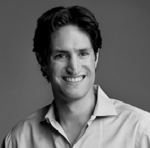 Our guest for this episode is Adam Alter, a psychologist who studies marketing and communication, and his New York Times bestselling book is titled Drunk Tank Pink after the color used to paint the walls of police holding cells after research suggested it lessened the urge to fight. Alter’s book details the power of names, regions, accents, clothes, colors, skin tones, race and everything in between. Those things, he explains on the show, become symbols and labels, charged with meaning. Thanks to the networks they ping in our brains, labels and symbols, even colors, change the ways in which we think, feel and behave without us realizing it, he explains.
Our guest for this episode is Adam Alter, a psychologist who studies marketing and communication, and his New York Times bestselling book is titled Drunk Tank Pink after the color used to paint the walls of police holding cells after research suggested it lessened the urge to fight. Alter’s book details the power of names, regions, accents, clothes, colors, skin tones, race and everything in between. Those things, he explains on the show, become symbols and labels, charged with meaning. Thanks to the networks they ping in our brains, labels and symbols, even colors, change the ways in which we think, feel and behave without us realizing it, he explains.
After the interview, I discuss how the dating website OKCupid convinced people to begin conversations with incompatible mates.
In every episode, before I read a bit of self delusion news, I taste a cookie baked from a recipe sent in by a listener/reader. That listener/reader wins a signed copy of my new book, “You Are Now Less Dumb,” and I post the recipe on the YANSS Pinterest page. This episode’s winner is Karlie Bell who submitted a recipe for coconut chocolate chip cookies. Send your own recipes to david {at} youarenotsosmart.com.
Download – iTunes – Stitcher – RSS – Soundcloud
PBS Documentary – A Class Divided
Research into race and bias concerning weapons vs. tools
Oak Ridge National Laboratory Website

July 21, 2014
YANSS Podcast 028 – The Sanity of Crowds with Michael Bond
The Topic: Crowds
The Guest: Michael Bond
The Episode: Download – iTunes – Stitcher – RSS – Soundcloud

A scene from the 2011 Vancouver riots, described by the photographer as, “a rioter dressed in a Vancouver Canucks jersey cheers on while a car burns” – Source: Wikimedia Commons, User: David Elop, Original here: http://bit.ly/1tqXdx6
It is a human tendency that’s impossible not to notice during wars and revolutions – and a dangerous one to forget when resting between them.
In psychology they call it deindividuation, losing yourself to the will of a crowd. In a mob, protest, riot, or even an audience, the presence of others redraws the borders of your normal persona. Simply put, you will think, feel, and do things in a crowd that alone you would not.
Psychology didn’t discover this, of course. The fact that being in a group recasts the character you usually play has been the subject of much reflection ever since people have had the time to reflect. No, today psychology is trying to chip away at the prevailing wisdom on what crowds do to your mind and why.
 This episode’s guest, Michael Bond, is the author of The Power of Others, and reading his book I was surprised to learn that despite several decades of research into crowd psychology, the answers to most questions concerning crowds can still be traced back to a book printed in 1895.
This episode’s guest, Michael Bond, is the author of The Power of Others, and reading his book I was surprised to learn that despite several decades of research into crowd psychology, the answers to most questions concerning crowds can still be traced back to a book printed in 1895.
Gustave’s Le Bon’s book, “The Crowd: A Study of the Popular Mind,” explains that humans in large groups are dangerous, that people spontaneously de-evolve into subhuman beasts who are easily swayed and prone to violence. That viewpoint has informed the policies and tactics of governments and police forces for more than a century, and like many prescientific musings, much of it is wrong.
Listen in this episode as Bond explains that the more research the social sciences conduct, the less the idea of a mindless, animalistic mob seems to be true. He also explains what police forces and governments should be doing instead of launching tear gas canisters from behind riot shields which actually creates the situation they are trying to prevent. Also, we touch on the psychology of suicide bombers, which is just as surprising as what he learned researching crowds.
After the interview, I discuss new research into how hiring quotas work and don’t work in loose societies vs. tight societies.
In every episode, before I read a bit of self delusion news, I taste a cookie baked from a recipe sent in by a listener/reader. That listener/reader wins a signed copy of my book, and I post the recipe on the YANSS Pinterest page. This episode’s winner is Laura Lee Gooding who submitted a recipe for stained-glass window cookies. Send your own recipes to david {at} youarenotsosmart.com.
Links and Sources
Download – iTunes – Stitcher – RSS – Soundcloud
Gender Quotas and Tight Cultures Study

July 9, 2014
YANSS Podcast 027 – The New Science Communicators with Joe Hanson
The Topic: Science Communication
The Guest: Joe Hanson
The Episode: Download – iTunes – Stitcher – RSS – Soundcloud
I recently collaborated with Joe Hanson of the YouTube channel It’s Okay to be Smart and helped him write an episode about pattern recognition.
The video is all about how our hyperactive order-generating brains can lead to us to incorrect assumptions, and how those assumptions can lead to widespread, social phenomena causing millions of people to do completely ridiculous and futile things, sometimes for generations. In our video, Joe talks about blowing in Nintendo cartridges to get them to work (totally pointless, and damaging), but you can substitute that behavior with a lot of other silly things that we did until science came along and tested to see if we were wrong.
I thought it would be great to bring him on the show and interview him in an episode all about the new science communicators, the people who grew up with Carl Sagan and Bill Nye, who are now watched by millions of people online as they explain everything from why some sounds are scary to whether or not Spanish delivers more information per minute than does English. Most of those YouTube channels get more viewers per episode than any FOX News program. Many YouTube science shows, numbers-wise, are far more popular than Game of Thrones.
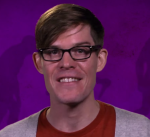 In this episode, we sit down with Joe Hanson, a biologist turned YouTube star, who runs the fantastic blog and channel, It’s Okay to be Smart. We learn what it is like to be part of the new wave of science communication, talk about science literacy, and discuss the ramifications of rubbing a beard with an infected chicken before conducting lab work.
In this episode, we sit down with Joe Hanson, a biologist turned YouTube star, who runs the fantastic blog and channel, It’s Okay to be Smart. We learn what it is like to be part of the new wave of science communication, talk about science literacy, and discuss the ramifications of rubbing a beard with an infected chicken before conducting lab work.
After the interview, I discuss a study about the difference between dogma and belief superiority, and how it helps explain why some politicians will never compromise.
In every episode, before I read a bit of self delusion news, I taste a cookie baked from a recipe sent in by a listener/reader. That listener/reader wins a signed copy of my first book, “You Are Not So Smart,” and I post the recipe on the YANSS Pinterest page. This episode’s winner is Trudie Wang who submitted a recipe for chocolate fudge peanut butter cookies. Send your own recipes to david {at} youarenotsosmart.com.
Links and Sources
Download – iTunes – Stitcher – RSS – Soundcloud
National Science Foundation Survey
Study: Feelings superior is a bipartisan issue
Publisher’s Weekly Review of You Are Now Less Dumb
David Attenborough’s Life on Earth

June 23, 2014
YANSS Podcast 26 – Maslow’s Hammer
The Topic: Maslow’s Hammer
The Episode: Download – iTunes – Stitcher – RSS – Soundcloud

Photo by Michael Jastremski – Original here: http://bit.ly/1iqqkjs
Take the YANSS Podcast survey, win a $100 Amazon Gift Card: http://www.podsurvey.com/yanss
“I suppose it is tempting, if the only tool you have is a hammer, to treat everything as if it were a nail.”
You’ve heard the expression before. You’ve may have, like myself, smugly used it a few times to feel like you made an intelligent point in an office conversation. It’s one of those great comebacks that we’ve decided is ok to use in professional settings like congressional debates and televised political arguments about everything from gun control to foreign policy. But, it might surprise you to learn who wrote it, how young the above quote is, and why it was written in the first place.
The quote comes from Abraham Maslow, the psychologist most famous for his hierarchy of needs. He was recalling how he had asked scientists of the 1930s to think of things like empathy, compassion, awe, and beauty as aspects of the human mind that could be studied. In his era, it was unclear how you could use the tools of science to do anything other than reduce consciousness to measurable things like neurons and reflexes. Maslow said it was possible, and he blamed skepticism over such pursuits on the culture and tools of the time.
Maslow’s famous quote comes after he describes first seeing an automatic car wash, saying how marvelous and complex it seemed, but that he realized that in the end “everything else that got into its clutches was treated as if it were an automobile to be washed.” He wrote that if science couldn’t process the parts of the mind he was interested in studying he would “either to give up my questions or else to invent new ways of answering them.”
That’s the topic in this episode of the You Are Not So Smart Podcast – Maslow’s Hammer, a plea from humanist psychology to be very careful when reducing human beings to their basic chemistry and not to lose sight of what makes human beings so wonderful.
I first wrote about Maslow’s Hammer at Psychology Today, and in this episode I read portions of that essay.
Links and Sources
Download – iTunes – Stitcher – RSS – Soundcloud
The article at Psychology Today

June 6, 2014
YANSS Podcast 25 – How the clothes you wear change your perceptions and behaviors with Hajo Adam
The Topic: Enclothed Cognition
The Guest: Hajo Adam
The Episode: Download – iTunes – Stitcher – RSS – Soundcloud
Take the YANSS Podcast survey, win a $100 Amazon Gift Card: http://www.podsurvey.com/yanss
When you work from home, do you produce better results in pajamas or professional attire? Do casual Fridays damage productivity? Does a jeans-and-T-shirt startup have an edge over its business-casual competitor?
Researchers are just now getting to the bottom of questions like these. The answers depend on the symbolic power the particular item of clothing has in the mind of the particular wearer, but the answer to each question is never “not at all.”
Up until now, most psychological investigations into clothing have dealt with how clothes communicate status or facilitate rituals. For instance, if you put a person in a police uniform and have them ask questions or make demands you’ll get completely different results than if you had the same person wear a pirate costume. But what about the person in the uniform or the costume? Are the clothes affecting his or her behavior, thoughts, judgments, and decisions? The evidence collected so far suggests that yes, the clothes we wear affect our minds in ways we never notice. In fact, it’s likely the same person in the same situation in the same clothes will behave differently depending just on the color of those clothes.
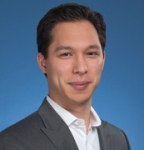 In this episode of the YANSS Podcast we explore enclothed cognition, and I interview one of the researchers who discovered the phenomenon. Hajo Adam, a professor of management and researcher at Rice University’s School of Business, explains how he and Adam Galinsky, a business professor at Columbia University, conducted the studies that showed people wearing lab coats perform better on tests of mental ability than people wearing street clothes.
In this episode of the YANSS Podcast we explore enclothed cognition, and I interview one of the researchers who discovered the phenomenon. Hajo Adam, a professor of management and researcher at Rice University’s School of Business, explains how he and Adam Galinsky, a business professor at Columbia University, conducted the studies that showed people wearing lab coats perform better on tests of mental ability than people wearing street clothes.
After the interview, I discuss a news story about how eyewitness testimony gets progressively less reliable the farther away the eyes of the witness from the crime.
In every episode, before I read a bit of self delusion news, I taste a cookie baked from a recipe sent in by a listener/reader. That listener/reader wins a signed copy of my new book, “You Are Now Less Dumb,” and I post the recipe on the YANSS Pinterest page. This episode’s winner is Todd Newman who submitted a recipe for perfect chocolate chip cookies with browned butter. Send your own recipes to david {at} youarenotsosmart.com.
Links and Sources
Download – iTunes – Stitcher – RSS – Soundcloud
Distance influences accuracy of eyewitness IDs
Sources:
Adam, Hajo, and Adam D. Galinsky. “Enclothed Cognition.” Journal of Experimental Social Psychology 48, no. 4 (2012): 918– 25.
Bargh, John A., Mark Chen, and Lara Burrows. “Automaticity of Social Behavior: Direct Effects of Trait Construct and Stereotype Activation on Action.” Journal of Personality and Social Psychology 71, no. 2 (1996): 230– 44.
“Suitably Dressed.” The Economist. Dec. 16, 2010. Web: Apr. 2012, http://www.economist.com/ node/ 17722802.

Eddie Robertson and his tabard tunic

May 26, 2014
YANSS Podcast 024 – How psychology can improve your sleep life with Richard Wiseman
The Topic: Sleep
The Guest: Richard Wiseman
The Episode: Download – iTunes – Stitcher – RSS – Soundcloud

A cropped photo of a bronze replica of a Roman copy of a Greek sculpture of Hypnos, from the British Museum, available for purchase by clicking this photo – more at: http://www.britishmuseumshoponline.org
Take the survey mentioned in the episode: http://www.podsurvey.com/yanss
It’s a good time for science-y things. Over the last few years, at least in the USA, the media empires and content hamlets have discovered that people like reading articles and watching videos about the things scientists are doing. In an age skeptical of agendas, unsure about where best to get a daily ration of awe and wonder, right now pop-science is a trusted source.
This has upset some very educated people who know a lot more about how science really works than the average consumer of popular media. I continue to read a variety of curmudgeonly opinions from public thinkers on things like Cosmos, Radiolab, Freakonomics, Malcolm Gladwell, I Fucking Love Science, and the tidal wave of YouTube channels devoted to the kind of programming that used to be the staple of The Discovery Channel. I disagree with the curmudgeons who prefer less gloss and more bar graphs (I think we can enjoy both), but that’s not where I’m headed with this post. Allow me to drop a quote to escape this tangent and move on.
“The average newspaper boy in Pittsburgh knows more about the universe than did Galileo, Aristotle, Leonardo, or any of those other guys who were so smart they only needed one name.” – Psychologist Dan Gilbert, from his book Stumbling on Happiness
No, I’m jazzed about this. I’m a cheerleader. And I think this surge of popularity is bolstered by a new intuition. If you have a problem with authority – religious, political, cultural – or if you have a restless rebellion always churning in your stomach, science feels like the sledgehammer that can smash all that came before. It even smashes itself.
But…before you get too smug about it, before you go around wagging fingers at people who believe weird things, remember that we only just got started with this way of thinking, and we really don’t know (for sure) a lot of stuff about a lot of stuff. The old sciences – astronomy, physics, chemistry – yeah, they’ve made plenty of progress into explaining the unknown. The young ones, like psychology, are still busy collecting data, still observing.
Some kinds of ignorance are less unsettling than others. Our lack of knowledge about things like black holes and quantum physics feels appropriate, even comforting. Though we are connected to those ideas by our very atomic makeup, the nescience doesn’t feel intimate unless someone like Richard Feynman explains why you should feel otherwise. There are other things, however, about which we know very little that do feel intimate. One of these things is the focus of this episode of the YANSS podcast – sleep. The phenomenon of sleep is just as unknown and mysterious and doggedly pursued by learned men and women as the invisible discothèques of the atomic world. Sleep is still behind a curtain of non-knowledge along with the constellation of phenomena that orbit it: dreams, nightmares, hallucinations, altered states of consciousness, and all the rest. Sleep is a fundamental part of being human, like eyes and ears and food and hugs – yet we know, in a scientific sense, practically nothing about it.
Consider these two quotes. William Dement, former dean of sleep studies at Stanford, a man with 50 years of research behind him, once told a reporter for National Geographic – “As far as I know, the only reason we need to sleep that is really, really solid is because we get sleepy.” Neuroscientist Giulio Tononi who studies sleep at The University of Wisconsin said at a conference of sleep scientists, “…despite the extraordinary tools we now have to investigate it, we still don’t know what it is for. In fact, we don’t know if it is for anything really.”
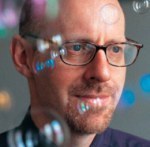 Even though we have yet to cross an ocean of understanding on this topic, the field of psychology has learned enough about how to increase the observable benefits of sleeping and dreaming to fill a book, and psychologist Richard Wiseman wrote that book. To learn more, we interview Wiseman who holds Britain’s Professorship in the Public Understanding of Psychology. Wiseman, a former magician, is the author of several books on psychology, is very active on YouTube, and a consultant for both MythBusters and Darren Brown. You can learn more about him at his website. His latest book is called Night School.
Even though we have yet to cross an ocean of understanding on this topic, the field of psychology has learned enough about how to increase the observable benefits of sleeping and dreaming to fill a book, and psychologist Richard Wiseman wrote that book. To learn more, we interview Wiseman who holds Britain’s Professorship in the Public Understanding of Psychology. Wiseman, a former magician, is the author of several books on psychology, is very active on YouTube, and a consultant for both MythBusters and Darren Brown. You can learn more about him at his website. His latest book is called Night School.
After the interview, I discuss a news story about how most Americans think they are smarter than most Americans, and another about how people in the UK are wrong about nearly everything.
In every episode, before I read a bit of self delusion news, I taste a cookie baked from a recipe sent in by a listener/reader. That listener/reader wins a confirmation bias T-shirt, and I post the recipe on the YANSS Pinterest page. This episode’s winner is Edward Eades who submitted a recipe for Sally cookies. Send your own recipes to david {at} youarenotsosmart.com.
Links and Sources
The Episode: Download – iTunes – Stitcher – RSS – Soundcloud
Average Americans Think They Are Smarter Than Average Americans
British Public Wrong About Nearly Everything, Survey Shows
National Geographic Article on Sleep
More on the Dallas dream season
The Infamous Dallas Dream Scene

May 7, 2014
YANSS Podcast 023 – What you can learn about dealing with differing political views from bloodthirsty, warring tribes of children
The Topic: The Illusion of Asymmetric Insight
The Episode: Download – iTunes – Stitcher – RSS – Soundcloud

A photo from the Robber’s Cave Study – Source: York University, Toronto
In the 1950s, in an effort to better understand group conflict, a team of psychologists nearly turned a summer camp into Lord of The Flies.
The story of how and why it was so easy to turn normal boys into bloodthirsty, warring tribes (and how those tribes eventually reconciled and became peaceful thanks to brilliantly conceived cooperative exercises) can teach you a lot about a common mental phenomenon known as the illusion of asymmetric insight – something that helps keep you loyal to certain groups and alters the way you see outsiders.
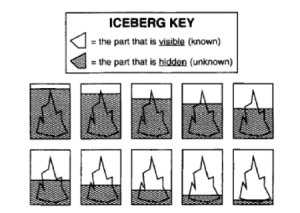
Icebergs from the Pross and Ronin Study
Later experiments revealed that if you imagine people’s inner lives as icebergs with some things showing above the surface and some things hidden from view, that you have a tendency to believe most of your iceberg is hidden, while everyone else’s is mostly visible. Scaled up, you also believe this about the groups, cultures, and nations to which you belong – yours are nuanced and complicated, theirs are simple and transparent (and dumb).
This asymmetry of insight colors your interactions and decisions big and small. That’s what we explore in this inbetweenisode of the YANSS Podcast.
Links and Sources:
The Episode: Download – iTunes – Stitcher – RSS – Soundcloud
Photo Source: York University Reprint of Original Study
NYT – I’m Right, For Some Reason
Haidt, Jonathan. “The Moral Roots of Liberals and Conservatives.” TED Talks. Filmed March 2008. Posted September 2008. (link)
Pronin, E., D. Y. Lin, and L. Ross. “The Bias Blind Spot: Perceptions of Bias in Self Versus Others.” Personality and Social Psychology Bulletin 28, no. 3 (2002): 369– 81.
Pronin, Emily, Justin Kruger, Kenneth Savtisky, and Lee Ross. “You Don’t Know Me, but I Know.”
You: The Illusion of Asymmetric Insight.” Journal of Personality and Social Psychology 81, no. 4 (2001): 639– 56. Pronin, Emily, Thomas Gilovich, and Lee Ross.
“Objectivity in the Eye of the Beholder: Divergent Perceptions of Bias in Self Versus Others.” Psychological Review 111, no. 3 (2004): 781– 99.
Sherif, Muzafer, O. J. Harvey, B. Jack White, William R. Hood, and Carolyn W. Sherif. Intergroup Conflict and Cooperation: The Robbers Cave Experiment. Norman, OK: University Book Exchange, 1961.
Classics in the History of Psychology. York University, Toronto. (link)
Sloman, Steven, and Philip M. Fernbach. “I’m Right! (For Some Reason).” The New York Times. October 19, 2012. (link)

April 24, 2014
YANSS Podcast 022 – How we miss what is missing and what to do about it with statistician Megan Price
The Topic: Survivorship Bias
The Guest: Megan Price
The Episode: Download – iTunes – Stitcher – RSS – Soundcloud

Illustrations by Brad Clark at http://www.plus3video.com – available for purchase here: http://bit.ly/1mItekh
The problem with sorting out failures and successes is that failures are often muted, destroyed, or somehow removed from sight while successes are left behind, weighting your decisions and perceptions, tilting your view of the world. That means to be successful you must learn how to seek out what is missing. You must learn what not to do. Unfortunately, survivorship bias stands between you and the epiphanies you seek.
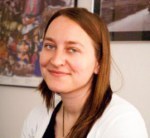 To learn how to combat this pernicious bias, we explore the story of Abraham Wald and the Department of War Math founded during World War II, and then we interview Wald’s modern-day counterpart, Megan Price, statistician and director of research at the Human Rights Data Analysis Group who explains how she uses math and statistics to save lives and improve conditions in areas of the world suffering from the effects of war.
To learn how to combat this pernicious bias, we explore the story of Abraham Wald and the Department of War Math founded during World War II, and then we interview Wald’s modern-day counterpart, Megan Price, statistician and director of research at the Human Rights Data Analysis Group who explains how she uses math and statistics to save lives and improve conditions in areas of the world suffering from the effects of war.
After the interview, I discuss a news story about how very old violins twist the beliefs of expert musicians.
In every episode, before I read a bit of self delusion news, I taste a cookie baked from a recipe sent in by a listener/reader. That listener/reader wins a signed copy of my new book, “You Are Now Less Dumb,” and I post the recipe on the YANSS Pinterest page. This episode’s winner is Ken Rose who submitted a recipe for a classic Italian biscotto. Send your own recipes to david {at} youarenotsosmart.com.
Links
The Episode: Download – iTunes – Stitcher – RSS – Soundcloud
The Original Survivorship Bias Story
Sources
Ask HN: Survivor Bias. Why don’t we focus more on startups that fail? 21 November 2012. 15 January 2013 https://news.ycombinator.com/item?id=4812480
Association, The American Statistical. “Resolution in Honor of Abraham Wald.” The American Statistician February 1951: 19.
Bodanis, David. E=mc2: A Biography of the World’s Most Famous Equation. Penguin, 2004.
—. Einstein the Nobody. 11 October 2005. 15 January 2013 &http://www.pbs.org/wgbh/nova/physics/einstein-the-nobody.html
Clark, Josh. Are modern cars less problematic? 22 March 2013http://auto.howstuffworks.com/under-the-hood/diagnosing-car-problems/mechanical/cars-less-problematic.htm
Cohen, Jason. Business Advice Plagued by Survivor Bias. 17 August 2009. 15 January 2013 http://blog.asmartbear.com/business-advice-plagued-by-survivor-bias.html
Dickersin, K.; Chan, S.; Chalmers, T. C.; et al. (1987). “Publication bias and clinical trials”. Controlled Clin Trials 8 (4): 343–353.
Erickson, L. (2010). Top Secret Rosies. Retrieved May 2013, from:http://www.topsecretrosies.com/Top_Secret_Rosies/Home.html
Edmunds.com. Volkswagen New Beetle History. 22 March 2013 http://www.edmunds.com/volkswagen/new-beetle/history.html
Gould, Stephen Jay. “Wide Hats and Narrow Minds.” New Scientist 8 Match 1979: 776-777.
INTJoe. How often do you consider the “Survivorship Bias”? 2009 November 2011. 22 March 2013 http://intjforum.com/showthread.php?t=26327
James, Barnaby. Spolsky on Survivor Bias. 8 February 2009. 15 January 2013 http://www.survivorbias.com/2009/02/spolsky-on-survivor-bias.html
Johnston, Mike. The Trough of No Value. 6 February 2009. 15 January 2013 http://theonlinephotographer.typepad.com/the_online_photographer/2009/02/the-trough-of-no-value.html
Kahneman, Daniel. Thinking, Fast and Slow. Farrar, Straus and Giroux, 2012.
Klinedinst, Mark. Interview in person David McRaney. 21 May 2013.
Menger, Karl. “The Formative Years of Abraham Wald and His Work in Geometry.” The Annals of Mathematical Statistics 23.1 (1952): 14-20.
Morgenstern, Oskar. “Abraham Wald, 1902-1950.” Econometrica 19.4 (1951): 361-367.
Taleb, Nassim Nicholas. The Black Swan: Kindle Edition: The Impact of the Highly Improbable. Random House , 2011.
Pettie, Andrew. Derren Brown: The System. 26 Jan 2008. 15 January 2013 http://www.telegraph.co.uk/culture/tvandradio/3670756/Derron-Brown-The-System.html
Plait, Phil. Interview via email exchange David McRaney. 2013 March.
Psych File Drawer. http://www.psychfiledrawer.org/TheFiledrawerProblem.php
Rees, Mina. “The Mathematical Sciences and World War II.” The American Mathematical Monthly October 1980: 607-621.
Samaniego, Marc Mangel and Francisco J. “Wald’s Work on Aircraft Survivability.” Journal of the American Statistical Association 79.386 (1984): 259-267.
ScepticaTV. Derren Brown – The System (Full). February 2011. 9 May 2013 https://www.youtube.com/watch?v=9R5OWh7luL4
Scherer, Sina. Bias in psychology: Bring in all significant results. 1 June 2012. 15 2013 January http://jeps.efpsa.org/blog/2012/06/01/falsification-of-previous-results/
Skinner, D. (2006). The Age of Female Computers. Retrieved May 2013, from http://www.thenewatlantis.com/publications/the-age-of-female-computers
Smith, M. D., Wiseman, R. & Harris, P. (2000). The relationship between ‘luck’ and psi. Journal of the American Society for Psychical Research, 94, 25-36.
Smith, M. D., Wiseman, R., Harris, P. & Joiner, R. (1996). On being lucky: The psychology and parapsychology of luck. European Journal of Parapsychology, 12, 35-43.
Tête, Annie. SciTech Tuesday: Abraham Wald, Seeing the Unseen. 13 November 2012. 15 January 2013 http://www.nww2m.com/2012/11/scitech-tuesday-abraham-wald-seeing-the-unseen/
Unknown. Our National Survivor Bias. 13 December 2010. 15 January 2013 http://spacetravelsacrime.blogspot.com/2010/12/our-national-survivor-bias.html
Wallis, W. Allen. “The Statistical Research Group, 1942-1945.” Journal of the American Statistical Association 75.370 (1980): 320-330.
—. “The Statistical Research Group, 1942-1945: Rejoinder.” Journal of the American Statistical Association 75.370 (1980): 334-335.
West, Walt. Examining Your Failures Can Lead to More Success: Beware Survivor Bias Mistakes. 7 April 2011. 15 January 2013 http://www.practicemanagementacademy.com/2011/04/survivor-bias
Wilson, Kevin. Men of Air: The Doomed Youth of Bomber Command. Orion, 2007.
Wiseman, Richard. “The Luck Factor.” The Magazine For Science And Reason May 2003. http://richardwiseman.com/resources/T...
Wolfowitz, J. “Abraham Wald, 1902-150.” The Annals of Mathematical Statistics 23.1 (1952): 1-13.
Wolverton, M. (2011). Girl Computers. Retrieved May 2013, from http://www.americanheritage.com/content/girl-computers

April 3, 2014
YANSS Podcast 021 – Christina Draganich explains how anyone can use science as a tool to understand nature, human and otherwise
The Topic(s): Placebo Sleep and Science
The Guest: Christina Draganich
The Episode: Download – iTunes – Stitcher – RSS – Soundcloud

Photo by Matteo Ianeselli, via Wikimedia Commons, http://bit.ly/1fAKROj
In 1998, The Journal of the American Medical Association published research that debunked therapeutic touch and moved the well-meaning mystical practice out of the kingdom of medicine and into the abandoned strip mall of quackery.
At the time, touch was enjoying a surge in popularity in hospitals and clinics. Practitioners claimed that they could manipulate mysterious energy fields and bring about healing by placing their hands above the body of the sick. The people doing this kind of work thought they were doing something wonderful, something good, but it was wishful thinking that had somehow bypassed the checks and balances of medical science.
The research that revealed therapeutic touch was bunk was based on a 9-year-old girl’s fourth-grade science fair project. Emily Rosa had already conducted several sound experiments based on her skepticism, and with the help of some career academics, her work was expanded. She is now part of history, the youngest person to publish research in a peer-reviewed scientific journal.
One of the central themes of You Are Not So Smart is you are so bad at thinking, judging, and deciding that your species had to invent a tool to help you work on the sort of problems you, as a human, are terrible at solving. For example, “Can I heal someone with my hands and empathy alone?” or “Should I pay someone to wave his hands above my dying mother?” or “Should health insurance plans cover healing touch?” or “Should our university offer nurses classes in manipulating energy?” These are not easy questions to answer correctly. Without science, you’ll probably get them wrong.
Hundreds of people over the centuries have slowly perfected a method, an invention, that continues to help humans leave the warmth of false certainty, embrace ignorance, and trade the fires of the stake for the fires that sent golf balls to the moon. If you are unacquainted with the basics of science, you will stumble around in the dark, flailing your hands, stumbling over cognitive biases, logical fallacies, weird heuristics, and so on. With science, with the tools and the tutelage of great teachers, a 9-year-old can drive through roadblocks of ignorance like the Dukes of Hazard and make the entire species a percentage point smarter.
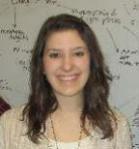
In this inbetweenisode, Christina Draganich explains how, as 21-year-old undergraduate, she came up with the idea to research placebo sleep, which led to a new scientific discovery, and she tells us how anyone with the right guidance can use science to expand our understanding of the natural world.
We also learn about new research that has identified a “continuity field” generated by the human brain to keep us from going mad.
Links and Sources
The Power of Positive Sleeping (story about the study)
Scientists pinpoint how we miss subtle visual changes, and why it keeps us sane
Emily Rosa and Therapeutic Touch

March 18, 2014
YANSS Podcast 020 – James Burke and Matt Novak ponder the future and why we are terrible at predicting it
The Topic: The Future
The Guests: James Burke and Matt Novak
The Episode: Download – iTunes – Stitcher – RSS – Soundcloud
If you love educational entertainment – programs about science, nature, history, technology and everything in between – it is a safe bet that the creators of those shows were heavily influenced by the founding fathers of science communication: Carl Sagan, David Attenborough, and James Burke.
In this episode of the You Are Not So Smart Podcast we sit down with James Burke and discuss the past, the present, and where he sees us heading in the future. Burke says we must soon learn how to deal with a world in which scarcity is scarce, abundance is abundant, and home manufacturing can produce just about anything you desire.
 James Burke is a legendary science historian who created the landmark BBC series Connections which provided an alternative view of history and change by replacing the traditional “Great Man” timeline with an interconnected web in which all people influence one another to blindly direct the flow of progress. Burke is currently writing a new book about the coming age of abundance, and he continues to work on his Knowledge Web project.
James Burke is a legendary science historian who created the landmark BBC series Connections which provided an alternative view of history and change by replacing the traditional “Great Man” timeline with an interconnected web in which all people influence one another to blindly direct the flow of progress. Burke is currently writing a new book about the coming age of abundance, and he continues to work on his Knowledge Web project.
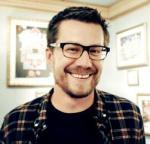 We also sit down with Matt Novak, creator and curator of Paleofuture, a blog that explores retro futurism, sifting through the many ways people in the past predicted how the future would turn out, sometimes correctly, mostly not.
We also sit down with Matt Novak, creator and curator of Paleofuture, a blog that explores retro futurism, sifting through the many ways people in the past predicted how the future would turn out, sometimes correctly, mostly not.
Together, Burke and Novak help us understand why we are to terrible at predicting the future and what we can learn about how history truly unfolds so we can better imagine who we will be in the decades to come.
After the interview, I discuss a news story about how cigarettes affect the way your brain interprets cigarette advertising.
In every episode, before I read a bit of self delusion news, I taste a cookie baked from a recipe sent in by a listener/reader. That listener/reader wins a signed copy of my new book, “You Are Now Less Dumb,” and I post the recipe on the YANSS Pinterest page. This episode’s winner is Patrick Regan who submitted a recipe for orange slice cookies. Send your own recipes to david {at} youarenotsosmart.com.
Links and Sources:
The Episode: Download – iTunes – Stitcher – RSS – Soundcloud
James Burke’s Connections – Book
PBS Frontline: Generation Like
Smokers’ brains biased against negative images of smoking

David McRaney's Blog
- David McRaney's profile
- 582 followers




